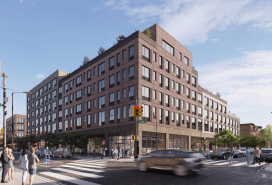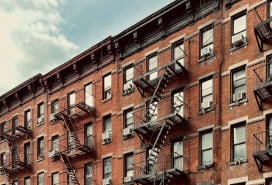Approval, schmoovel! Renovation perks for board members

Manhattan architect and NYC Renovation Chronicles columnist David Katz recently shared with us some pre-renovation advice.
“It is always the case that those with connections to the board are able to have their alteration applications reviewed more quickly than others," he said. "For this reason, I always advise my clients to become friendly with the board well before they intend to renovate.”
But renovators whose aspirations extend beyond speedy approval to tacit approval of an illicit washer-dryer or other verboten improvement may be better advised to get on the board.
BrickUnderground checked in with some architects and contractors to find out precisely what sort of renovation-related "accommodations" frequently come with a seat on the board.
Manhattan contractor Jeff Streich says he has seen board presidents get away with the most--like through-wall air conditioners and garbage disposals, and even obtaining rare dispensation to carry out “wet over dry” renovations, which involve moving a kitchen or a bathroom over a neighbor’s bedroom or living area.
Another Manhattan contractor says board members frequently put in non-compliant windows--like a huge single-paned modern window where a casement-style one used to be--forgoing approval by the Landmarks Preservation Commission, for instance, if the building is in a historic district, and bypassing official approval by the board.
The contractor said he had also been directed by board members to change room counts (e.g., splitting a living room into a bedroom and a living room) without getting the required permits or official clearances.
Some rule-flouting is done with other board members’ knowledge; others rely on the staff keeping quiet.
Of board presidents in particular, says Streich, “the people who work in the building are scared."
Then there are the gentlemen’s agreements among board members.
“We are currently completing the second renovation in a Fifth Avenue co-op in the 60s which does not allow separate laundry units in apartments,” one architect told us. “However, we have toured several of the board members’ units and found well-concealed laundry closets with stackable units, all with waterproof pans with curb and drain. There is an understanding that as long as it is properly installed, the super will not make a big deal out of it.”
(They better hope those drains work, because in the event of a flood, we suspect the downstairs neighbors will not be quite so understanding.)
It’s also apparently handy to be on the board when someone else is renovating.
“When I do a project on the same floor as a board president, different rules apply,” says Streich. “I just did a project where I had to install plastic walls in the hallways so that no dust got near the board president’s door."
On a job in an apartment located above a board president, says Streich, he had to wait until 11 am to start working, versus the 10 am permitted by the house rules.
Related posts:
NYC Renovation Chronicles: The inside scoop on vertical renovation



























